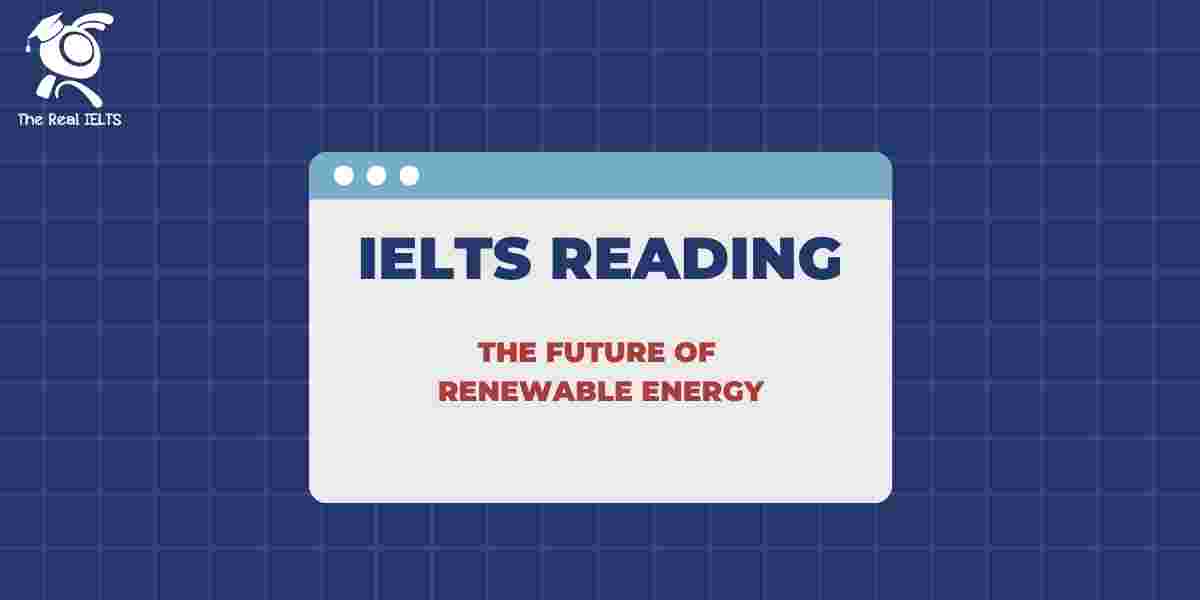Từ vựng chủ đề Health là một trong các chủ đề được ôn luyện trong giai đoạn từ 0 đến 3.0 cho các bạn tự học IELTS. Chính vì vậy, việc thuộc và nắm chắc cách sử dụng các từ vựng của chủ đề này rất quan trọng. Sau đây là từ vựng chủ Health được The Real IELTS thiết kế:
Đọc thêm: 100 từ vựng chủ đề HEALTH ví dụ và bài tập part 2.
Đọc thêm: 100 từ vựng chủ đề EDUCATION ví dụ và bài tập (Part 2).
Từ vựng chủ đề Health
| Health | Sức khỏe | Regular exercise is essential for maintaining good health. | Tập luyện đều đặn là quan trọng để duy trì sức khỏe tốt. |
| Wellness | Sự khỏe mạnh | Embracing a holistic approach to life contributes to overall wellness. | Áp dụng một quan điểm toàn diện đối với cuộc sống góp phần vào sức khỏe tổng thể. |
| Nutrition | Dinh dưỡng | Paying attention to proper nutrition is crucial for a healthy lifestyle. | Chú ý đến dinh dưỡng đúng đắn là quan trọng để duy trì lối sống lành mạnh. |
| Exercise | Tập thể dục | Daily exercise can boost both physical and mental well-being. | Tập thể dục hàng ngày có thể nâng cao cả sức khỏe thể chất và tinh thần. |
| Fitness | Sức khỏe thể chất | Achieving and maintaining optimal fitness requires dedication and consistency. | Đạt và duy trì tình trạng thể chất tối ưu đòi hỏi sự kiên trì và nhất quán. |
| Diet | Chế độ dinh dưỡng | A well-balanced diet includes a variety of fruits, vegetables, and lean proteins. | Một chế độ dinh dưỡng cân đối bao gồm nhiều loại trái cây, rau củ và protein chất lượng. |
| Balanced diet | Chế độ ăn cân đối | A balanced diet ensures you get the necessary nutrients for your body. | Chế độ dinh dưỡng cân đối đảm bảo bạn nhận được đủ chất dinh dưỡng cần thiết cho cơ thể. |
| Physical activity | Hoạt động thể chất | Engaging in regular physical activity supports cardiovascular health. | Tham gia thường xuyên vào hoạt động vận động hỗ trợ sức khỏe tim mạch. |
| Mental health | Sức khỏe tâm thần | Prioritizing mental health is essential for overall well-being. | Ưu tiên sức khỏe tâm thần là quan trọng cho sức khỏe tổng thể. |
| Well-being | Phúc lợi | Positive relationships contribute significantly to emotional well-being. | Mối quan hệ tích cực đóng góp một cách đáng kể vào sức khỏe tinh thần. |
| Hygiene | Vệ sinh | Personal hygiene practices, such as washing hands, prevent illness. | Thực hành vệ sinh cá nhân, như rửa tay, ngăn ngừa bệnh tật. |
| Immunization | Tiêm chủng | Immunization protects individuals and communities from infectious diseases. | Tiêm chủng bảo vệ cá nhân và cộng đồng khỏi các bệnh truyền nhiễm. |
| Vaccination | Tiêm phòng | Childhood vaccination is crucial for preventing serious illnesses. | Tiêm chủng trong thời thơ ấu là quan trọng để ngăn chặn các bệnh nặng nề. |
| Disease prevention | Phòng ngừa bệnh | Disease prevention programs focus on promoting healthy habits. | Các chương trình phòng ngừa bệnh tập trung vào việc khuyến khích thói quen lành mạnh. |
| Healthy lifestyle | Lối sống lành mạnh | Adopting a healthy lifestyle involves making positive choices daily. | Việc thực hiện lối sống lành mạnh liên quan đến việc đưa ra những lựa chọn tích cực hàng ngày. |
| Sleep | Ngủ | Sufficient sleep is vital for cognitive function and overall health. | Giấc ngủ đủ giấc là quan trọng cho chức năng nhận thức và sức khỏe tổng thể. |
| Rest | Nghỉ ngơi | Taking breaks and allowing proper rest is essential for productivity. | Nghỉ ngơi và cho phép thời gian nghỉ đúng cách là quan trọng để tăng cường năng suất. |
| Stress management | Quản lý stress | Developing effective stress management techniques improves mental well-being. | Phát triển các kỹ thuật quản lý căng thẳng hiệu quả cải thiện sức khỏe tinh thần. |
| Relaxation | Thư giãn | Incorporating moments of relaxation is key to reducing stress. | Thêm những khoảnh khắc thư giãn là chìa khóa để giảm căng thẳng. |
| Meditation | Thiền | Regular meditation can enhance both physical and mental health. | Thực hành thiền thường xuyên có thể nâng cao cả sức khỏe thể chất và tinh thần. |
| Yoga | Yoga | Yoga promotes flexibility, strength, and a sense of inner calm. | Yoga khuyến khích sự linh hoạt, sức mạnh và cảm giác bình tâm nội tâm. |
| Aerobic exercise | Tập thể dục nhịp điệu | Engaging in aerobic exercise improves cardiovascular fitness. | Tham gia hoạt động thể dục nhịp độ cao cải thiện sức khỏe tim mạch. |
| Anaerobic exercise | Tập thể dục không nhịp điệu | Anaerobic exercise builds strength and muscle mass. | Hoạt động thể dục không nhịp độ tạo ra sức mạnh và cơ bắp. |
| Cardiovascular health | Sức khỏe tim mạch | Regular exercise supports optimal cardiovascular health. | Tập luyện đều đặn hỗ trợ sức khỏe tim mạch tối ưu. |
| Respiratory system | Hệ hô hấp | The respiratory system is responsible for breathing and oxygen exchange. | Hệ thống hô hấp chịu trách nhiệm cho quá trình hô hấp và trao đổi oxy. |
| Cardiovascular system | Hệ tuần hoàn | The heart and blood vessels make up the cardiovascular system. | Trái tim và các mạch máu tạo nên hệ thống tuần hoàn máu. |
| Immune system | Hệ miễn dịch | A healthy lifestyle strengthens the immune system. | Lối sống lành mạnh củng cố hệ thống miễn dịch. |
| Digestive system | Hệ tiêu hóa | Proper nutrition is vital for a well-functioning digestive system. | Dinh dưỡng đúng đắn là quan trọng cho hệ tiêu hóa hoạt động tốt. |
| Nervous system | Hệ thần kinh | The nervous system controls body functions and responds to stimuli. | Hệ thống thần kinh kiểm soát các chức năng cơ thể và phản ứng đối với kích thích. |
| Muscular system | Hệ cơ bắp | Regular exercise maintains a strong and healthy muscular system. | Tập thể dục đều đặn duy trì hệ cơ bắp khỏe mạnh. |
| Skeletal system | Hệ xương | A balanced diet with sufficient calcium supports a strong skeletal system. | Một chế độ dinh dưỡng cân đối với lượng canxi đủ hỗ trợ hệ xương cốt mạnh mẽ. |
| Circulatory system | Hệ tuần hoàn máu | The heart and blood vessels form the circulatory system. | Trái tim và các mạch máu tạo nên hệ thống tuần hoàn máu. |
| Respiratory rate | Nhịp thở | Monitoring respiratory rate is essential in assessing lung function. | Theo dõi tần suất hô hấp là quan trọng trong việc đánh giá chức năng phổi. |
| Blood pressure | Huyết áp | Regular exercise helps maintain healthy blood pressure levels. | Tập thể dục đều đặn giúp duy trì mức huyết áp khỏe mạnh. |
| Heart rate | Nhịp tim | Heart rate increases during physical activity to supply more oxygen to muscles. | Nhịp tim tăng lên trong khi hoạt động vận động để cung cấp thêm oxy cho cơ bắp. |
| Cholesterol level | Mức cholesterol | A balanced diet influences cholesterol levels in the blood. | Một chế độ dinh dưỡng cân đối ảnh hưởng đến mức cholesterol trong máu. |
| Body mass index (BMI) | Chỉ số khối cơ thể (BMI) | BMI is a measure of body fat based on height and weight. | Chỉ số BMI là một đánh giá về mỡ cơ thể dựa trên chiều cao và cân nặng. |
| Calories | Lượng calo | Balancing calories consumed and burned is crucial for weight management. | Cân bằng lượng calo tiêu thụ và đốt cháy là quan trọng cho quản lý cân nặng. |
| Nutrients | Dinh dưỡng | A variety of foods provide essential nutrients for overall health. | Nhiều loại thực phẩm cung cấp chất dinh dưỡng quan trọng cho sức khỏe tổng thể. |
| Vitamins | Vitamin | Fruits and vegetables are rich sources of essential vitamins. | Trái cây và rau củ là nguồn vitamin quan trọng. |
| Minerals | Khoáng chất | Dairy products and leafy greens are abundant in essential minerals. | Sản phẩm từ sữa và rau xanh có nhiều khoáng chất quan trọng. |
| Protein | Protein | Including lean protein in your diet supports muscle health. | Bao gồm protein chất lượng trong chế độ dinh dưỡng hỗ trợ sức khỏe cơ bắp. |
| Carbohydrates | Carbohydrate | Whole grains and fruits provide important sources of carbohydrates. | Ngũ cốc nguyên hạt và trái cây cung cấp nguồn hydrat hóa quan trọng. |
| Fats | Chất béo | Choosing healthy sources of fats is important for heart health. | Chọn nguồn chất béo lành mạnh là quan trọng cho sức khỏe tim mạch. |
| Fiber | Chất xơ | A diet high in fiber promotes digestive health. | Chế độ ăn giàu chất xơ thúc đẩy sức khỏe tiêu hóa. |
| Water intake | Uống nước | Staying hydrated by monitoring water intake is essential for health. | Giữ nước cho cơ thể bằng cách theo dõi lượng nước uống là quan trọng cho sức khỏe. |
| Dehydration | Mất nước | Symptoms of dehydration include thirst, dizziness, and dark urine. | Triệu chứng của sự mất nước bao gồm khát, chói lọi và nước tiểu đậm. |
| Hydration | Dinh dưỡng nước | Proper hydration is essential for overall bodily functions. | Việc duy trì đủ nước trong cơ thể là quan trọng cho các chức năng cơ thể tổng thể. |
| Organic food | Thực phẩm hữu cơ | Some people choose organic food for its perceived health benefits. | Một số người chọn thức ăn hữu cơ vì những lợi ích sức khỏe mà họ cảm nhận được. |
| Processed food | Thực phẩm chế biến | Limiting the intake of processed food contributes to better health. | Giảm lượng thức ăn chế biến giúp cải thiện sức khỏe. |
| Nutritional supplements | Bổ sung dinh dưỡng | Some individuals take nutritional supplements to fill dietary gaps. | Một số người sử dụng bổ sung dinh dưỡng để bổ sung lỗ hổng dinh dưỡng. |
Bài tập chủ đề Health
I. Vocabulary and Comprehension:
- Write a brief definition for each of the following terms:
- Cardiovascular health
- Holistic approach
- Anaerobic exercise
- BMI (Body Mass Index)
- Explain the importance of the circulatory system in maintaining overall health.
- Discuss the significance of a holistic approach to life and its impact on wellness.
- Describe the role of personal hygiene practices in preventing illness.
- List three benefits of engaging in regular physical activity.
II. Reading Comprehension:
Read the following passage and answer the questions below:
Proper nutrition plays a crucial role in maintaining a healthy lifestyle. A well-balanced diet should include a variety of fruits, vegetables, lean proteins, and whole grains. It provides essential nutrients that support various bodily functions, ensuring optimal health.
- What are the key components of a well-balanced diet mentioned in the passage?
- Why is proper nutrition considered crucial for a healthy lifestyle?
- How does a well-balanced diet contribute to overall health?
III. Writing:
- Write a short paragraph (5-7 sentences) discussing the importance of regular exercise in achieving and maintaining optimal fitness.
- Create a list of three practical tips for maintaining a healthy lifestyle based on the information provided.
IV. Reflection:
- Reflect on your current lifestyle habits and identify one area where you could make a positive change to promote better health. Explain your choice and outline the steps you would take.
- Write a paragraph expressing your opinion on the use of nutritional supplements. Do you think they are necessary for maintaining good health?
Đáp án của bài tập
I. Vocabulary and Comprehension:
- Cardiovascular health: The health and well-being of the heart and blood vessels.
- Holistic approach: A comprehensive approach that considers the whole person, including physical, mental, and social aspects.
- Anaerobic exercise: Intense physical activity that doesn’t rely on oxygen for energy production, often involving short bursts of power.
- BMI (Body Mass Index): A measure of body fat based on height and weight.
II. Reading Comprehension:
- The key components of a well-balanced diet mentioned in the passage are a variety of fruits, vegetables, lean proteins, and whole grains.
- Proper nutrition is considered crucial for a healthy lifestyle because it provides essential nutrients that support various bodily functions, ensuring optimal health.
- A well-balanced diet contributes to overall health by supplying essential nutrients needed for the proper functioning of the body’s organs, tissues, and systems.
III. Writing:
- Regular exercise is essential for achieving and maintaining optimal fitness. Engaging in physical activity enhances cardiovascular health, promotes a strong muscular system, and contributes to mental well-being. Dedication and consistency in exercising are key factors in achieving long-term fitness goals.
- Practical Tips for Maintaining a Healthy Lifestyle: a. Incorporate a variety of fruits, vegetables, and whole grains into your daily meals. b. Engage in at least 30 minutes of moderate-intensity exercise most days of the week. c. Prioritize mental health by practicing stress management techniques, such as meditation or deep breathing exercises.
IV. Reflection:
- I would make a positive change in my daily routine by prioritizing sufficient sleep. Currently, I often sacrifice sleep for work or entertainment. To address this, I plan to establish a consistent sleep schedule, aiming for 7-8 hours of sleep each night. This change would contribute to better cognitive function and overall well-being.
- In my opinion, nutritional supplements are not necessary for everyone. While they can be beneficial for individuals with specific deficiencies or dietary restrictions, obtaining nutrients from a well-balanced diet is generally sufficient. Relying on whole foods ensures a broader range of nutrients and promotes a healthier lifestyle.















